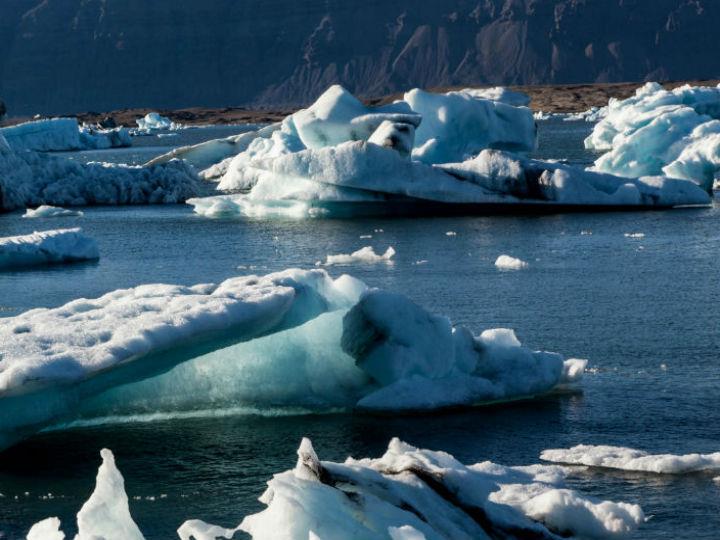by Andre Gattolin and Damien Degeorges
Andre Gattolin is vice-chair of the French Senate’s European Affairs Committee and the author of three EU-Arctic related information reports. Damien Degeorges is a Reykjavik-based international consultant specialising in EU-Arctic affairs.
The Arctic, the Northernmost part of Europe, remains a region of low tension, but for how long? While we support this month’s Council conclusions on EU Arctic Policy, we also highlight the importance of having the Arctic high on the new Commission’s agenda in 2020. Especially for a “a geopolitical Commission”.
When regional geopolitics becomes global
Cooperation exists in the Arctic between Russia and Western Arctic countries despite tensions that may arise between them outside the Arctic. The Arctic Council, a high-level regional forum established in 1996, has shown to be one of the most interesting emanation of post-Cold War cooperation. It remains a useful tool for regional cooperation, but the Arctic is now a global region.
The Arctic Council was established at a time of major geopolitical change and low tension in a post-Cold War thinking. Nearly a decade earlier, in 1987, Mikhail Gorbachev initiated this change in a famous speech at Murmansk. At the time, the world competition was between two Arctic stakeholders, the USSR and the US. The need for regional cooperation was therefore high in the region, and remains so today on some issues. The Arctic Council was forward-thinking by taking what was then a new issue, the protection of the environment, as a driving force of this regional dialogue.
The Arctic Council now needs to be reconfigured to avoid becoming an empty shell. The world is facing a new major geopolitical change with large continental blocks appearing again, but this time they are no longer two and they are sometimes far from the Arctic but with interests in the region.
As we are entering a new period of global tensions, not necessarily military but primarily economically, the need for a ‘2.0 version’ of the Arctic Council is even greater as a low-tension Arctic can no longer be taken for granted.
The EU as part of a global Arctic
When it comes to the strategic challenges facing the Arctic nowadays, a global perspective remains essential. Many issues have globalised the Arctic. Top is climate change, which led the region to touch upon issues such as maritime navigation, fisheries and potential large developments within onshore and offshore resource extraction.
Security issues in a global region can by their nature have global connections and would still be there, in the Arctic, without climate change.
In order to keep the Arctic as a low-tension area, security issues can no longer be the dust swept under the rug – or, more precisely, under the melting ice.
The von der Leyen Commission needs to rapidly confirm the level of its ambition on the Arctic. We believe that it should be at its highest. Not only regarding the Arctic as a region, but also when it comes to Overseas Countries and Territories (OCTs) with regards to Greenland.
The European Union took too long to get interested in the Arctic. The existential question for the Union’s Arctic ambition should not be related to its status vis-a-vis the Arctic Council. The EU should instead focus on preventing further Chinese influence in the European Arctic, and that includes Greenland.
For European, and more broadly transatlantic security, seeing the Chinese Belt and Road Initiative being developed in Southern and Eastern Europe is one thing, but it is different once it goes North. Particularly when it could reach the so-called GIUK gap between Greenland, Iceland and the United Kingdom as this area is of major strategic importance for the security of the sea lines of communication between North America and Europe.
What will it take for the European Union to understand that the European High North is a very serious business? A possible new financial crisis with tensions in the Arctic due to Chinese harbour projects in the North-Atlantic that would threaten Europe’s security? The security of Europe also relies on its North, and Iceland, for instance, cannot become a scenario like the one involving China in Greece following the global financial crisis in 2008.
Security concerns related to China’s involvement in the broad Arctic region are also related to hybrid threats. Activities in the field of education would certainly top a threat assessment on this issue, particularly when looking at territories with a limited population. In the European Arctic, Greenland and Iceland have, for years, been a very sensitive area concerning China’s Arctic involvement, but particular attention should also be paid to the Faroe Islands in that regard. Those three territories form the deeply interconnected and strategically located West Nordic region. An area that certainly deserves greater engagement from the European Union.
Military security is nowadays discussed all over the place when it comes to the Arctic, except in the Arctic Council for statutory reasons. It remains essential to talk about shared security interests so that the Arctic can remain a low-tension area. Brussels would certainly be an appropriate venue to discuss Arctic security more often, at least from an European and transatlantic perspective. If the EU wants to become an effective global actor, it should take the lead on such an initiative.
*first published in: www.euractiv.com




 By: N. Peter Kramer
By: N. Peter Kramer
